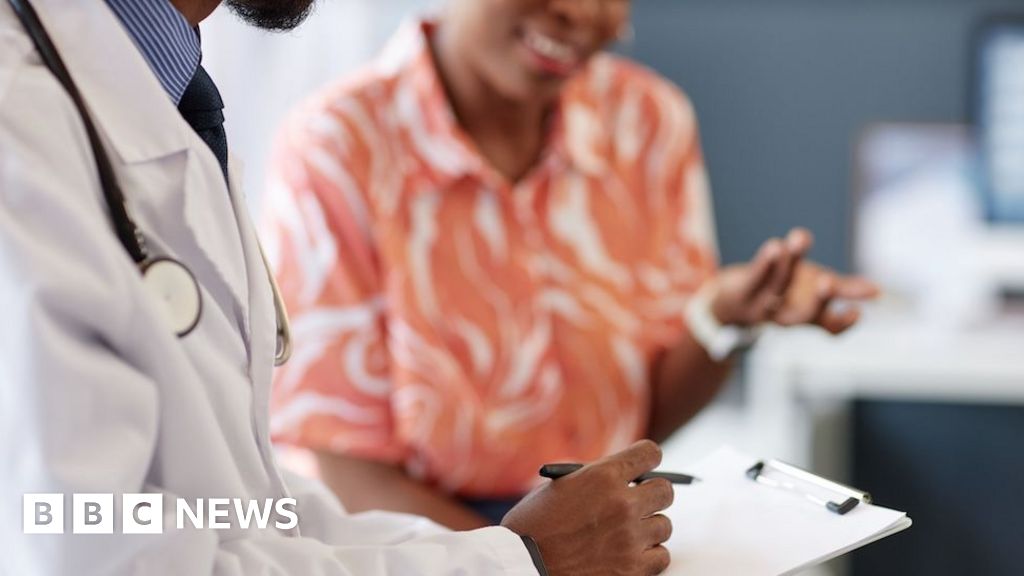ARTICLE AD BOX
By Paul Martin
Wales Live
Image source, Getty / Oscar Wong
Image caption,Masks are no longer legally required in shops
It is no longer the law to wear a mask in shops or on buses and trains in Wales from Monday as more Covid restrictions are scrapped.
Two years into the pandemic, self-isolation rules have also ended but it will still be a legal requirement to wear a mask in health and social care settings.
BBC Wales visited Barry to ask people how they felt about the changes.
Views were mixed, as some welcomed the move while others urged caution.
Vicky McDonald owns a chocolate shop on Barry's High Street.
It was her birthday on Sunday and she said the end of masks being legally required in retail "feels like a lovely present from Drakeford".
She said it has been hard running a business through Covid "having to keep up with constantly evolving regulations".
"Personally I welcome the lifting of masks and restrictions just because I'm really keen to get back to normal life," she said.
"I find it really hard to communicate with customers with the mask on as well.
"It's hard to gauge what they're feeling about their experience in the shop."
'It hasn't gone past that peak'
Builders Ian Toomey and Trevor Dell say they will be keeping their masks on when they are working
Down the road, builders Ian Toomey and Trevor Dell took a different view.
"We should keep the face masks in all built-up areas, football stadiums, rugby matches, everywhere where you get a good crowd," Mr Dell said.
"My wife's a cleaner in a school and they're still dropping off like anything with Covid.
"It hasn't gone past that peak to do away with it yet."
Mr Toomey said he thought Covid was getting less attention in the media because of Ukraine and he and Mr Dell would continue to wear masks when they are working.
"We wear masks in people's homes, we wear masks in building suppliers, wherever we go where there's other people, we wear masks," he said.
Mr Dell was also concerned about the financial impact of catching Covid.
"What happens when you've got to take a week off work and the benefits aren't there to uphold your living standards?" he said.
"With the price of living going up, who can afford to take time off?"
The £500 support payments for some people isolating will remain available until June, it has been confirmed.
'It's safer'
Pauline Meyrick thinks face mask laws should have stayed
Pauline Meyrick, 66, lives in Spain, but was back in Barry visiting family.
She said she thought the rules on masks should have been kept in place for "public transport, doctors, shopping".
"I just think it's safer for everyone," she said.
"They're very strict in Spain, you've got to wear your mask shopping and as soon as you go out through the door."
At Barry railway station, Jen Ao Ieong was about to commute to Cardiff where she works in an art shop.
Jen Ao Ieong commutes to work and has already noticed passengers not wearing masks
She noticed that some passengers were already not wearing masks.
"I think people are mentally there already," she said.
She thought others would still wear them as it had become "part of our culture".
"But it's nice that people don't have to implement it. For staff, it's not on them anymore."
Are people still worried about catching Covid?
Mauro Zeraschi, who owns Sophia's Souvenirs on Barry Island, agreed that people working in shops have often been in a difficult position.
"Trying to enforce it when you have no power to can be tricky," he said.
He added that he thought lifting the rules was "the right choice".
"Majority of people I know are double-vaccinated and boosted and as long as you're careful, and if you do catch Covid you're going to isolate."
Lewis and Gabrielle Evans, from Rhondda Cynon Taf, were on a visit to Barry Island with their six-week-old daughter Myla.
Lewis said he would continue to wear a mask on public transport.
"I still don't think it's 100% safe," he said.
Gabrielle added: "Since having Myla I don't really want to risk giving her anything, her catching anything, so I'll still be wearing a mask."
Willadene Young feels cautious because of her health issues
Willadene Young, who was on a day trip from Watchet in Somerset, was feeling cautious too.
She said she felt vulnerable to the virus as she had "a lot of medical conditions".
"I'm basically quite well but I just don't want to risk it because I don't know what effect it would have on me," she said.
"I would prefer in public places and especially public transport that masks were still worn."

 3 years ago
91
3 years ago
91








 English (US) ·
English (US) ·